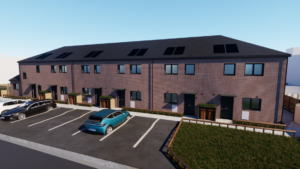Majority of landlords getting basic safety requirements wrong
 The majority of landlords are getting basic safety requirements wrong, and most do not understand that they are required by law to protect tenant’s deposits in protection schemes, according to a nationwide survey of landlords conducted by lettings company, Urban.co.uk.
The majority of landlords are getting basic safety requirements wrong, and most do not understand that they are required by law to protect tenant’s deposits in protection schemes, according to a nationwide survey of landlords conducted by lettings company, Urban.co.uk.
The survey found that 51% of landlords answered incorrectly when asked how often they need to apply for a Gas Safety Certificate for their rental property and just 32% of landlords knew the legal requirements for the number of smoke alarms required.
‘It’s very worrying that over 50% of landlords are unaware of the correct procedures to follow with regards to gas safety in their rental properties, the importance of understanding gas safety cannot be overstated,’ said Adam Male, director of Lettings at Urban.co.uk.
By law, landlords must protect a tenant’s deposit inside a tenancy protection scheme but according to the survey, 91% of landlords aren’t following the correct process.
The survey also found that a massive 44% of landlords thought licensing schemes only impact on holiday lets.
NewStart recently reported on selective licensing, which is being introduced by more and more councils looking to improve rental conditions and clamp down on rogue landlords.
After a landlord applies for a licence they have to take a ‘fit and proper’ person test and pay a fee. It ranges from council to council, with it usually costing between £350 and £1000 and lasting for up to five years.
In return, they’ll face inspections to check if they are adhering to certain health and safety conditions. If the license is breached, landlords could be prosecuted and face fines of up to £30,000.
Responding to the survey, Chris Norris, director of policy and practice at the National Landlords Association (NLA), told NewStart it was ‘disappointing’ to see that so many landlords are unaware of the basic requirements.
However, Mr Norris says some results ‘should be taken with a grain of salt.’
82% of landlords didn’t know what the legal size of room allowed to be rented out to a single person is, which is a requirement only applicable to licensable HMOs, a type of property that is owned by only 19% of landlords according to their own survey of landlords.
‘This demonstrates how vital it is for landlords to join an association to keep up-to-date with the ever-changing legislation and regulations governing the private rented sector,’ he added.















